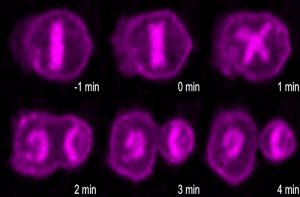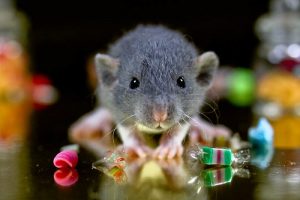Enter your address to receive notifications about new posts to your email.
Articles by Marisa Wexler (43 results)
-
Building infrastructure to support mentor training
Improving research mentor training requires new approaches. Mentoring is essential for the success of researchers at all career stages, but not all mentor-mentee relationships are created equal. Students from historically underrepresented backgrounds often receive less mentoring than their peers, and many mentors are not trained in how to mentor effectively. To address some of these…
-
Finding fresh mutations
Improved duplex sequencing identifies spontaneous mutations in bacteria without long-term culturing. Spontaneous mutations are the driving force of evolution, yet, our ability to detect and study them can be limited to mutations that accumulate clonally. Sequencing technology often cannot identify very rare variants or discriminate between bona fide mutations and errors introduced during sample preparation.…
-
Feedback is welcome
Analysis of insulin-like signaling in C. elegans reveals extensive positive and negative feedback regulation. The insulin-like signaling system of nematode worms is comparable to that of more complex organisms; it helps regulate a wide range of the animal’s biology, including metabolism, growth, and development. This system is remarkably flexible, with the ability to maintain a…
-
Unequal divisions of death
Apoptotic pathway promotes asymmetric cell division during C. elegans development. Cell division doesn’t always produce identical daughter cells; often, the demands of multicellular development require cells to split into two quite different daughters with quite different fates. These “asymmetric” divisions are needed so that cells can differentiate and specialize, and some cells are even programmed…
-
An ancient regulator of sex development
A Wnt protein involved in the formation of the human ovary plays an important role in female zebrafish sex development. Even though zebrafish are a well-studied research model, how these fish develop into males or females remains rather obscure—in part because the sex of lab strains is not determined by sex chromosomes. Research published…
-
Does Candida grow on trees?
An opportunistic human pathogen makes itself at home on old oaks. At one point or another, most people have played host to the common yeast Candida albicans. Around 40-60% of healthy adults carry around it in their mouth or guts; in immunocompromised people, however, this normally harmless cohabitant becomes a deadly pathogen. Generally thought to…
-
How the fat body regulates fly sleep
The gene Ade2 links metabolism and sleep in the fat bodies of Drosophila. All animals need to eat and sleep. In fact, these critical behaviors are intertwined: animals adjust their sleep needs based on food availability and energy storage. In a Featured article in G3, Yurgel et al. delved into the molecular mechanisms that connect…
-
From sequence to centimeters: predicting height from genomes
Machine learning and access to ever-expanding databases improves genomic prediction of human traits. In theory, a scientist could predict your height using just your genome sequence. In practice, though, this is still the stuff of science fiction. It’s not only your genes that affect height—environment also plays a role—but the larger problem is that height…
-
She has her mother’s coping style
Parent-of-origin effects help determine how lab rats respond to stress. Although your father and mother each contribute a copy of your genes, these copies don’t always play equal roles. Instead, one parent’s gene can have a disproportionate effect on the offspring’s phenotype, resulting in complex patterns of inheritance. In G3: Genes|Genomes|Genetics, Mont et al. examined…
-
What’s the cost of a slip in translation?
Programmed ribosomal frameshifting has translational costs that may influence codon usage bias. The genetic code has some redundancy—the same amino acid is often encoded by several codons. However, these codons are not necessarily equal in their effect, as evidenced by the codon usage bias observed in many organisms. The translation efficiency hypothesis posits that some…
-
What inspired Mendel?
Newly uncovered newspaper articles shed light on Mendel’s motivations. Gregor Mendel is considered by many to be the father of genetics. Yet, because his work was not fully appreciated in its time, little is known about Mendel himself. Primary sources, such as letters he wrote, are rare; only a few dozen pieces of his correspondence…











